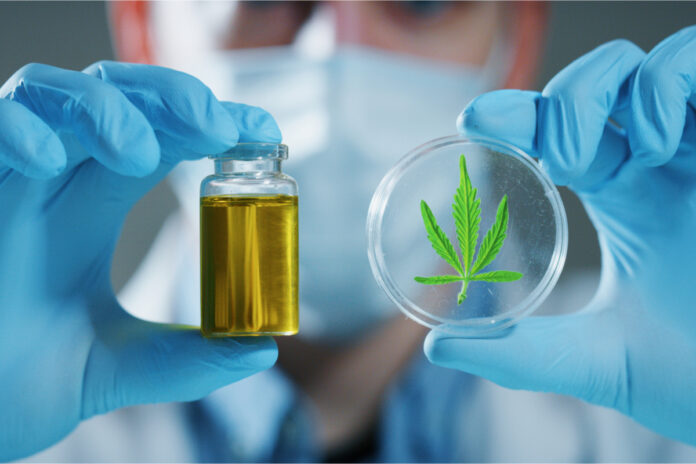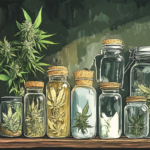LOS ANGELES – Delta-8-Tetrahydrocannabinol (Delta-8) has been making headlines recently as a possible lifeline for hemp farmers who, thanks to oversupply and flagging CBD sales, face an uncertain future. But is the cannabis-derived substance legal? At the federal level, the answer is unclear.
Delta-8 is a cannabinoid found in the cannabis sativa plant. Like its familiar cousin, Delta-9-Tetrahydrocannabinol—commonly known as THC—Delta 8 binds to the body’s endocannabinoid system, causing users to feel high. Though the effects of Delta-8 are less potent, creating a more “clear-headed high” and inducing lower levels of anxiety and paranoia.
Although Delta-8 can be obtained from both marijuana (cannabis sativa containing more than 0.3 percent THC) and hemp (cannabis sativa containing less than 0.3 percent THC), it typically is manufactured from hemp-derived cannabidiol (CBD), which leads to some of the confusion around Delta-8.
“The status of Delta-8 THC under federal law is not clear, due to a conflict between the law and a Drug Enforcement Administration regulation,” said John Ottaviani, a partner at law firm Partridge Snow & Hahn LLP. “Under the federal 2018 farm bill, all hemp-derived cannabinoids, including all Delta-8 THC derived from hemp, fall within the definition of “hemp,” which is no longer a controlled substance federally, and can be legally produced and sold, subject to a complex set of federal regulations. However, in Fall 2020 the DEA issued an Interim Final Rule which stated that all ‘synthetically derived tetrahydrocannabinols remain Schedule I controlled substances.’”
Jonathan Miller, general counsel for the U.S. Hemp Roundtable agrees. “It’s not clear whether [Delta-8 THC products] are illegal under the 2018 farm bill,” he said “It is clear that it violates the spirit of the law.”
Still, some members of the industry remain optimistic.
“We really see Delta-8 as a natural progression of the cannabis industry and specifically the hemp industry,” said Chris Roth, chief executive officer for CBD retailer Highline Wellness. “I think during the time of the 2018 farm bill, the information available was very limited on hemp, and frankly, the education of the agencies responsible for writing the laws was probably not where it needed to be in terms of being able to set up a regulatory framework that made sense for not only consumers but businesses.
“Part of that perhaps early-stage or green approach was that they explicitly made Delta-9 THC derived from marijuana the only ingredient illegal in the farm bill,” he added. “So, at the end of the day, that is the law that is governing the hemp industry.”













